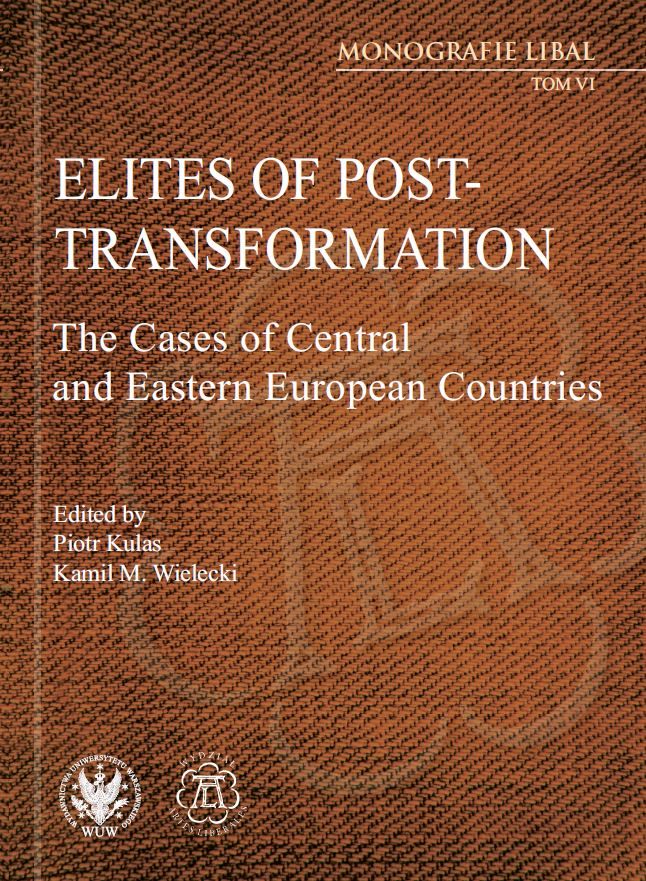ELITE REPLACEMENT AND CIVIL SOCIETY
ELITE REPLACEMENT AND CIVIL SOCIETY
Author(s): Pavol Frič
Subject(s): Politics, Sociology, Security and defense
Published by: Wydawnictwa Uniwersytetu Warszawskiego
Keywords: elite; civil society; alliance; elite replacement
Summary/Abstract: Classical elite theory considers elite change as a law of nature. The old elites are continuously replaced by new ones that are no better than the old ones. It does not distinguish whether the elites are democratic or not. However, the democratic aspect of elite replacement has recently played an increasingly important role. This is especially so in the context of the rise to power of populist elites almost throughout the democratic world. The season of victorious authoritarian populist leaders has also brought into the replacement of old elites by new ones the question of the role of civil society in this process. This question is particularly urgent in the post-communist countries of Central Europe, where civil society played a significant role in replacing the populist communist elites of more than 30 years ago. The new wave of populism in these countries is associated in the academic literature with the process of democratic backsliding and with expectations that civil society, together with democratic political parties, will counter this process of replacing democratic elites with authoritarian ones. Against the backdrop of Gramsci’s concept of competing (counter)hegemonic historical blocs, this chapter seeks to show that the alliance between elites and civil society is an important factor in the process of elite replacement and that the replacement of elites in post-communist countries is not only an “elite game” but also depends on the ability of civil society organizations to mobilize the general public in support of one part of the elites. It also demonstrates the involvement of civil society organizations in building illiberal, conservative alliances and replacing liberal democratic elites with populist ones, using examples of elite replacement in the four Central European countries.
Book: Elites of Post-Transformation
- Page Range: 63-95
- Page Count: 33
- Publication Year: 2024
- Language: English
- Content File-PDF

